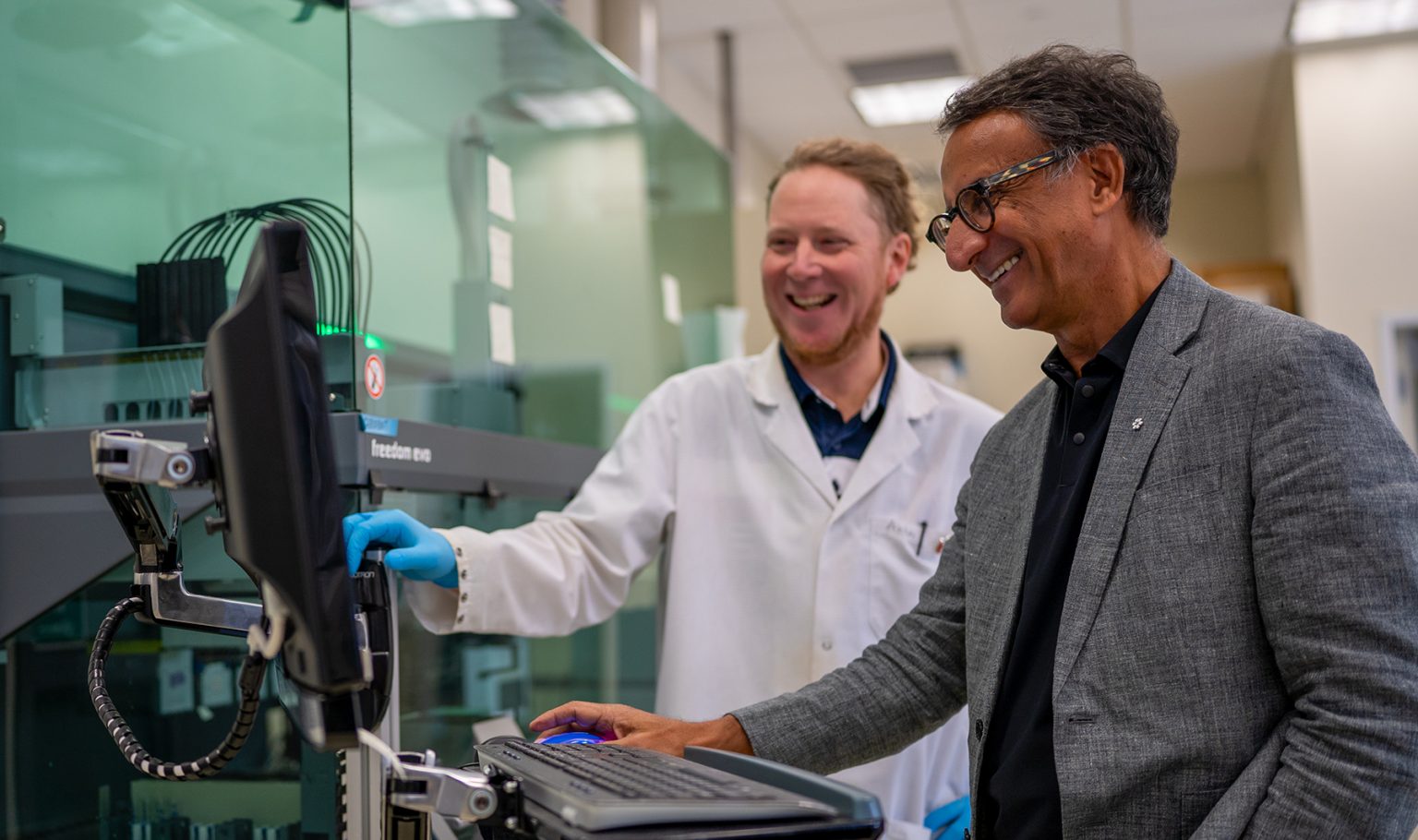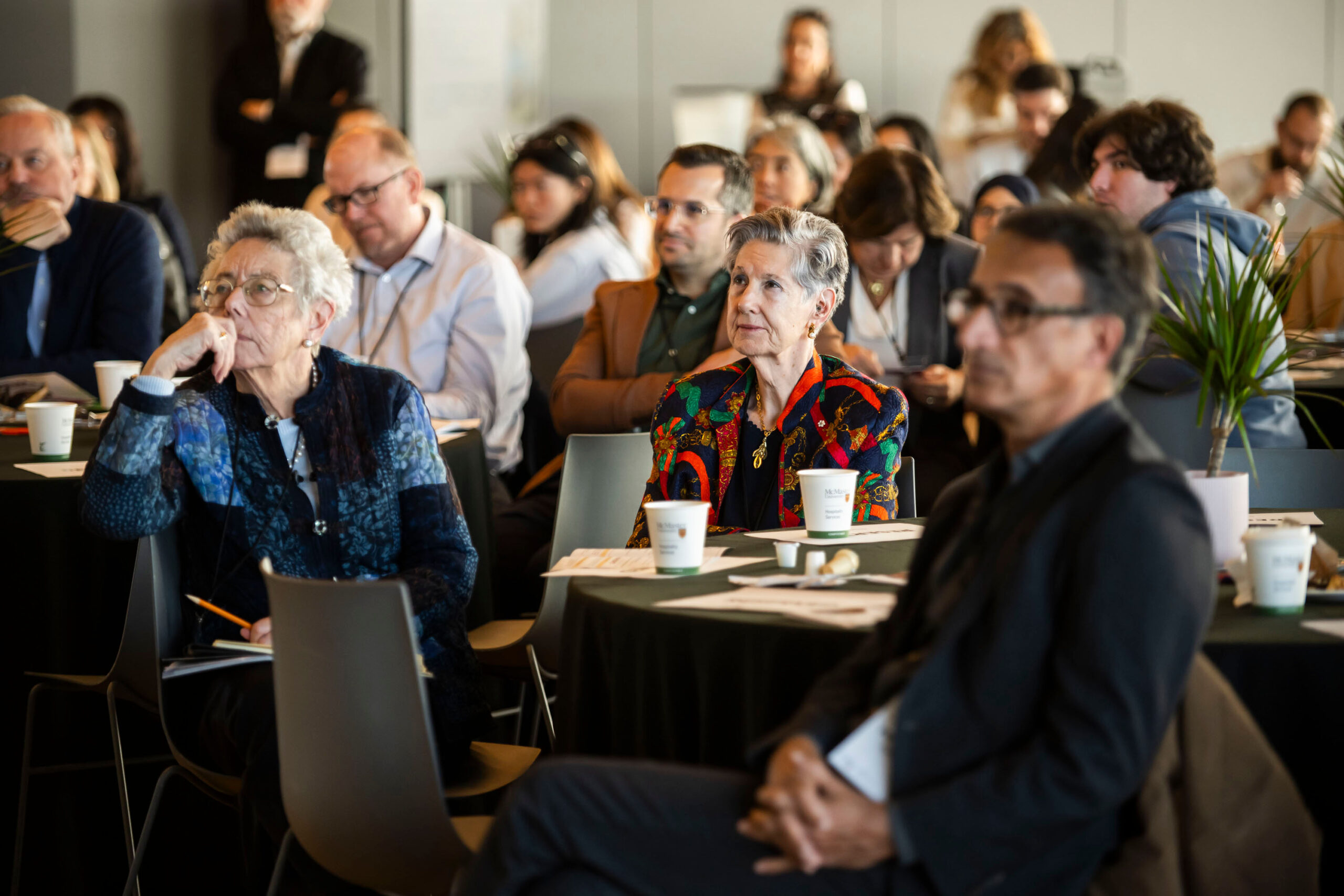
By ​​​Izabela Szydlo, November 24, 2017
With the World Health Organization estimating that by 2050 as many as 2 billion people may be over 60 years old, McMaster has increased its focus on the well being of our aging global population. The latest effort in this ongoing mission is a public talk on Monday, Dec. 4, Neuroscience and the Older Consumer: Challenges and Opportunities. The event will examine the challenges and emerging innovation opportunities when it comes to neuroscience and the older consumer.
“Aging is a complex process, and the best way to tackle complex issues is through an interdisciplinary approach,” says Pina Del Monte, DeGroote Research Support Facilitator, whose role includes promoting opportunities for research partnerships with industry and other McMaster researchers. Del Monte, along with her colleague Grace Pollock from the Faculty of Humanities, is helping to organize the event.
“DeGroote faculty members, and in particular those in the McMaster Digital Transformation Research Centre (MDTRC), are well-positioned to conduct research focused on improving the online experiences of older adults, as well as their adoption of digital technology,” Del Monte continues. “Our Humanities colleagues, with expertise in media and communications studies, are focused on understanding and responding to the needs of the aging population.”
The MDTRC engages in cutting-edge multidisciplinary research aimed at better understanding how the digital revolution is impacting individuals and transforming organizations and society at large. It was designed to facilitate collaborative multidisciplinary research, student training, and executive education.
The public talk, co-organized by the McMaster Institute for Research on Aging, the MDTRC, and McMaster’s Faculties of Business and Humanities, will bring all of these elements together. It will consist of an afternoon workshop for researchers, focusing on building interdisciplinary collaborations, as well as an evening presentation by Michael E. Smith, a scientist and business professional whose career has spanned academic, government, and commercial sectors.
Smith’s research applies neuroscience methods to improve our understanding of how people interact with technology and media, as well as how those interactions change with cognitive aging. Most recently, he served as Vice-President of Consumer Neuroscience Solutions at Nielsen, a global information services and consumer measurement company. He holds a PhD from the UCLA Psychology Department, and an MBA from the Haas School of Business at the University of California, Berkeley.
An interactive session moderated by Khaled Hassanein, DeGroote’s Associate Dean, Graduate Studies and Research, and Director of the MDTRC, will follow the keynote address. Joining the conversation will be Milena Head, Professor, Information Systems, and Wayne C. Fox Research Chair in Business Innovation. Head specializes in electronic business and human-computer interaction. Terry Flynn, Associate Professor, Department of Communication Studies and Multimedia, will round out the panel. Flynn is one of Canada’s leading public relations and communications management scholars.
“The dynamics associated with our aging population will present both challenges and opportunities for private firms, governments, and not-for-profit service providers,” says Del Monte. “This public talk will be of value to anyone who seeks to understand the implications of an aging demographic, as well as considerations related to emerging technologies and media interactions.”
Neuroscience and the Older Consumer: Challenges and Opportunities will take place Monday, Dec. 4 from 5:30 to 7:30 p.m. at Burlington’s Ron Joyce Centre. Admission is free, and registration is now open.

